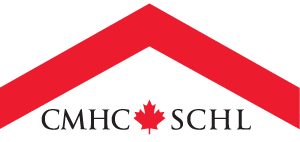Permanent housing is the ultimate goal when it comes to helping the homeless and those with distinct needs. In order to do that, housing and wrap-around supports must be effectively coordinated, affordable and adequate. They also must be suitable for vulnerable people as a long-term solution.
The Medicine Hat Systems Transformation Solutions Lab will connect Medicine Hat’s homeless-serving system with other systems and supports. It brings together a diverse team to examine and reframe Medicine Hat’s current housing, supports and systems integration. Using a co-design process, they will create a comprehensive plan for system transformation. The result will be a community and system-wide model for accessing systems of care that provides clients with wrap-around supports.
3 Key Goals
-
✔
Co-design a systems transformation initiative combining prevention, public systems, housing and homeless serving sectors and those with lived experience.
-
✔
Improve housing conditions for vulnerable populations, focusing on coordinating access to housing and supports.
-
✔
Ensure clients can access regular supports within a reasonable time, allowing a successful exit from the Housing First program.
Project scope and expected outcomes
Considering the entire social safety net
Medicine Hat has had great success in reducing homelessness. Within 3 days of an individual becoming homeless in Medicine Hat, they are seen by a support worker. The goal is to have a permanent roof over their head with appropriate supports for long-term stabilization. Success, however, is more than aligning homelessness and housing systems. It is also about connecting and linking vulnerable groups to supports, services and other social inclusion measures.
To do this, housing and homelessness must be addressed within a holistic systems approach. The Lab will do that by creating a systems transformation initiative. This will combine prevention, public systems, housing and homeless serving sectors and those with lived experience. The goal is to realign the current system of care to focus on long-term outcomes beyond the Housing First program.
There are multiple benefits to an integrated system. Clients could access regular supports in a reasonable time. They could also develop and strengthen skills and abilities through employment, education, social integration and health supports. Each of these could help stabilize a client’s situation and lead to self-sufficiency and wellbeing.
A human-centred wellbeing model
The design of the Lab is human-centred, using a rights-based wellbeing model. It will seek input from the vulnerable populations that need help, the Medicine Hat Community Housing Society and local stakeholders.
The Lab will be conducted over 5 phases:
- The Definition Phase includes establishing the scope of the Lab and confirming commitment, funding and project understanding among the partners. A workplan will be created that outlines the engagement strategy for participants, and the reporting logistics will be established.
- The Discovery Phase will involve a system review and research into best practices. The HelpSeeker System Map will be used to analyse and discuss key features and services operating in Medicine Hat.
- The Development Phase involves exploring and co-developing potential solutions to accelerate system improvements. Materials for the consultation process and a community assessment survey will be designed. User Design Labs will identify current system challenges and imagine future solutions with diverse key user groups. A blueprint for agency and service coordination will be created that spans prevention to housing, with health support as needed.
- The Delivery Phase will include two community forums. Data collected will be synthesized and the prototype of a new system of care will be designed for testing. It will be presented in a systems transformation framework.
- The Roadmap Phase will develop a set of proposed strategies based on the research and consultations. Stakeholders will be brought together again to develop a strategy for implementing and expanding the successful prototype. A final framework report with roles, tools, targets and outcomes will be produced.
Making content available to non-specialists
The Lab’s final report will summarize the entire process of the Lab, its expected and unintended outcomes, and any lessons learned. The Lab will use the Homeless Hub web portal to share information and resources from the Lab. Plain language summaries of the project will make the content available to non-specialists. This will increase Lab participation, and make it accessible to the public and policy-makers.
Lab partners will document learnings from each phase, and develop tools to share information about the Lab process and ideas. These will be shared through monthly blog posts that are simple and short, and that make extensive use of images. The project roadmap will also be released to gather support for expanding the systems transformation solutions nationally.
Project Team: Medicine Hat Community Housing Society
Location: Medicine Hat, Alberta
Project Collaborators / Partners:
- City of Medicine Hat
- THRIVE South Eastern Alberta
- Medicine Hat Food Bank
- Medicine Hat College
- Prairie Rose School Division
- HelpSeeker
Innovation Consultant:
- Alina Turner, Turner Strategies
Get More Information:
Contact
Innovation-Research@cmhc.ca
or visit
our website to learn more about the Innovation initiatives under the
National Housing Strategy.

Learn about the progress of this Solutions Lab: Help at your fingertips thanks to a digital solution






 Share via Email
Share via Email
